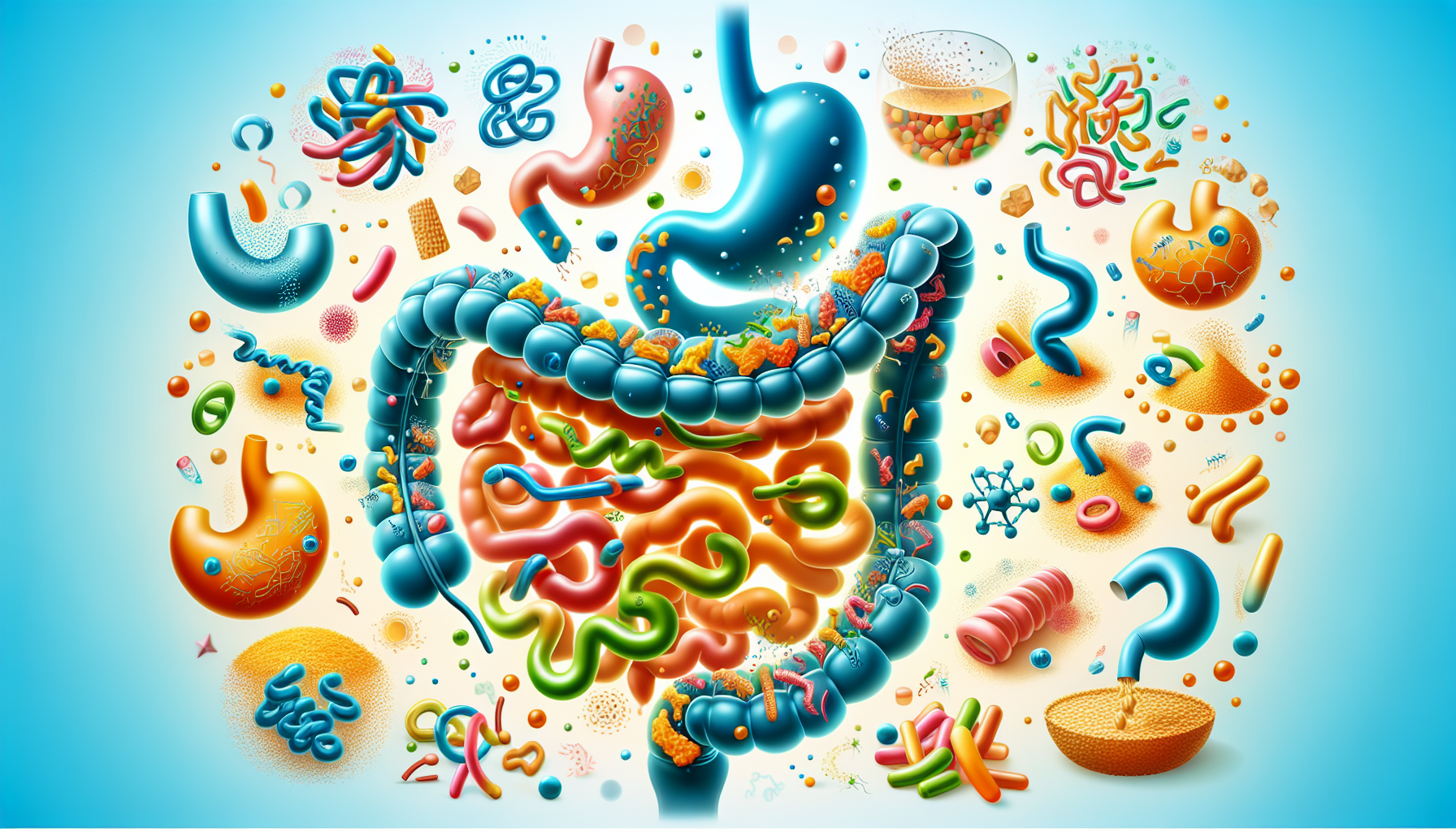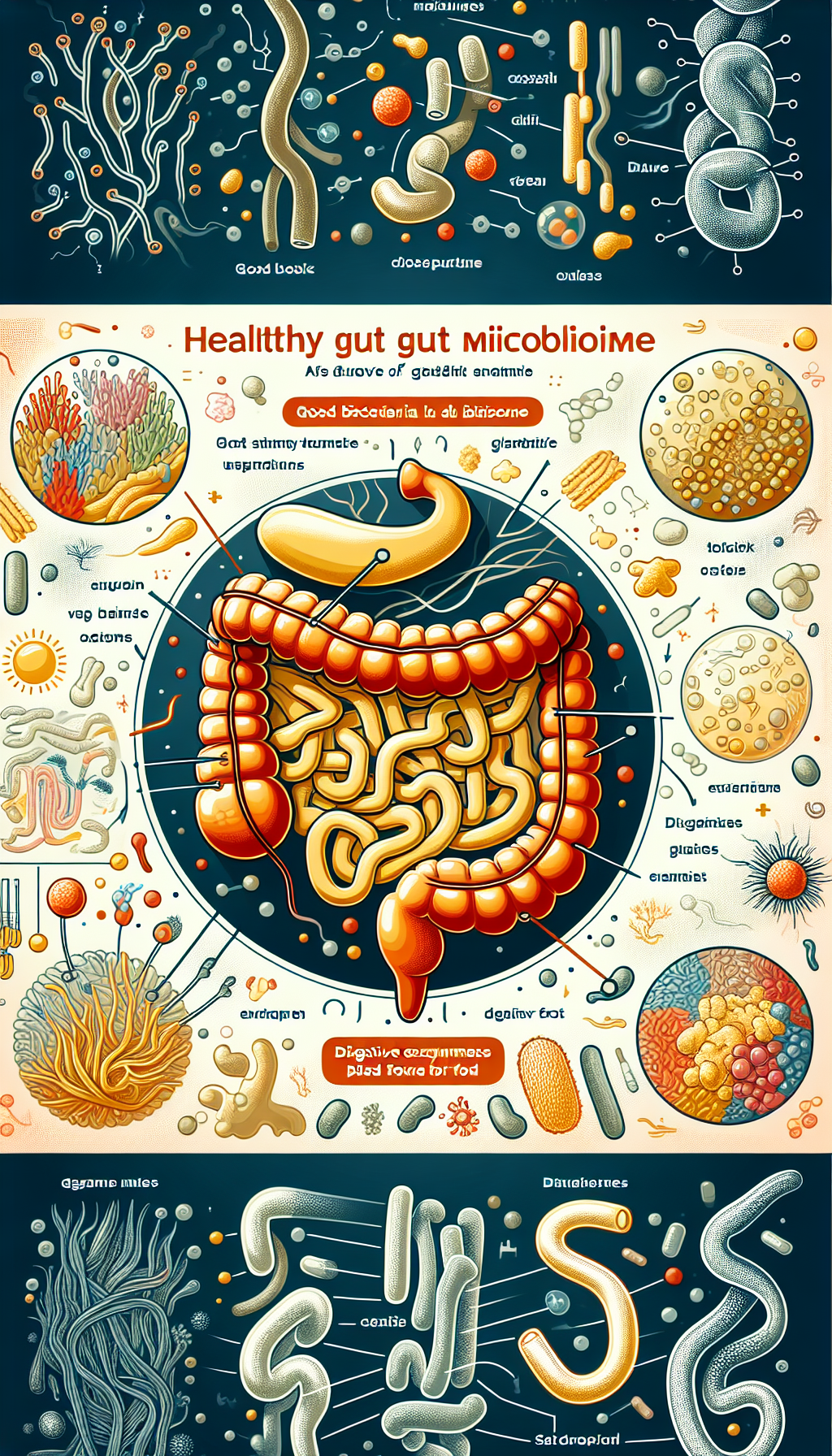Digestive health is a fundamental aspect of overall well-being. It’s the cornerstone of how we process food, absorb nutrients, and maintain a balanced internal environment. Central to this process are digestive enzymes, the unsung heroes of our gastrointestinal system. These biological catalysts are responsible for breaking down the foods we eat into absorbable substances that our bodies can utilize. In this comprehensive exploration, we’ll delve into the intricacies of digestive enzymes and their critical role in maintaining gut health.
What are Digestive Enzymes?
Digestive enzymes are proteins produced by the body to speed up the chemical reactions necessary for digestion. They work by breaking down complex molecules like fats, proteins, and carbohydrates into smaller, more manageable pieces that can be easily absorbed through the gut wall into the bloodstream.
There are several types of digestive enzymes, each targeting a specific nutrient:
- Proteases break down proteins into amino acids.
- Lipases handle the digestion of fats into fatty acids and glycerol.
- Amylases are responsible for breaking down carbohydrates into simple sugars.
The Vital Role in Gut Health
The digestive process begins in the mouth, where amylase in the saliva starts the breakdown of carbohydrates. As food travels down the esophagus and into the stomach, proteases like pepsin take the lead in protein digestion. The journey continues into the small intestine, where the majority of digestion occurs. Here, the pancreas secretes a cocktail of enzymes, including lipase, more proteases, and additional amylase, to further the digestive process.
Without these enzymes, nutrients would pass through the body undigested, leading to malnutrition despite adequate food intake. Furthermore, improperly digested food particles can contribute to a variety of gut health issues, such as bloating, gas, and irregular bowel movements.
Linking Digestive Enzymes and Immune Function
A less known yet significant aspect of digestive enzymes is their relationship with the immune system. The gut is a major site of immune activity, and when the digestive process is compromised, it can lead to increased inflammation and a weakened immune response. For an in-depth understanding of this relationship, consider reading about The Relationship Between Digestive Health and Immunity.
Enzyme Deficiencies and Health Consequences
Enzyme deficiencies, whether due to genetics, disease, or lifestyle factors, can lead to specific health issues. For instance, lactose intolerance is the result of a deficiency in lactase, the enzyme required to digest lactose found in dairy products. Understanding these deficiencies is crucial in managing conditions like lactose intolerance through dietary management.
Factors Influencing Enzyme Production
Several factors can affect the body’s production of digestive enzymes. Age is a significant factor, as enzyme production can decrease with age, leading to various age-related digestive issues. A diet high in processed foods and low in natural, raw ingredients can also diminish enzyme activity. Chronic stress, certain medications, and underlying health conditions can further impair enzyme production and function.
Enhancing Enzyme Function Naturally
To support digestive enzyme function, incorporating raw foods like pineapple and papaya, which contain natural proteolytic enzymes, can be beneficial. Fermented foods such as yogurt, kefir, and sauerkraut also provide a boost of natural enzymes. Managing stress, staying hydrated, and eating a balanced diet rich in whole foods can further enhance digestive health.
Supplementing with Digestive Enzymes
For those with enzyme insufficiencies or digestive health concerns, supplementation can be a valuable tool. Digestive enzyme supplements can help alleviate symptoms associated with enzyme deficiencies and support the digestive process.
When considering enzyme supplements, it’s important to consult with a healthcare professional to ensure they are appropriate for your specific needs and to explore the role of medication and supplements in your overall health strategy.
The Impact of External Factors on Enzyme Efficiency
Diet and lifestyle choices are not the only factors that influence enzyme efficiency. The body’s pH levels, the presence of coenzymes and cofactors, and the health of the digestive tract all play pivotal roles. For an in-depth look at digestive health and function, understanding the effects of caffeine and other dietary components is essential.
External resources provide further insights into the complexity of digestive enzymes and their role in gut health. For example, research published by the National Institutes of Health explores the genetic factors affecting enzyme production. Another valuable resource is the American Journal of Clinical Nutrition, which examines the impact of dietary choices on digestive health.
The Future of Digestive Health Research
Ongoing research into digestive enzymes is unraveling new connections between gut health and overall well-being. The exploration of the gut-brain axis, for instance, reveals how a healthy digestive system can influence mental health, a topic covered in depth in the article on Healthy Gut, Healthy Mind.
The future of digestive health lies in personalized medicine, where understanding an individual’s unique enzyme profile could lead to customized dietary and treatment plans. This personalized approach could transform the management of digestive disorders and enhance the quality of life for many.
In conclusion, digestive enzymes are essential to our health, facilitating the breakdown of food and the absorption of nutrients. By understanding the factors that affect enzyme production and taking steps to support their function, we can significantly improve our digestive health and, by extension, our overall well-being. Whether through diet, lifestyle changes, or supplementation, there are numerous ways to ensure our digestive enzymes are working optimally for us.
For more insights and strategies on managing digestive health, be sure to explore the comprehensive resources available at Avix Health. Remember, a healthy gut is the foundation of a healthy life.



